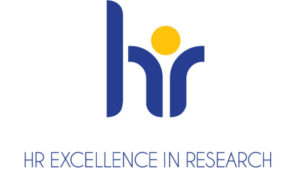Postdoc in Modelling System Science and Complexity


The Basque Centre for Climate Change (BC3) offers a full-time postdoctoral scientist position in order to support the research activities of Research Line (RL) 5 on Integrated Modelling of Coupled Human-Natural Systems, supported by the IKUR programme of the Basque Government on Supercomputing and Artificial Intelligence (HPC/AI).
The RL generates multidisciplinary scientific knowledge from human-nature interdependence to address complex sustainability problems through artificial intelligence (AI). The goal of the RL is to provide environmental data, models and understanding by retrieving, evaluating and integrating the existing information in order to support an effective policy-making where nature counts. Besides Ecosystem Services, the RL also tackles Natural Capital Accounting, Food Security, Marine Spatial Planning, and Renewable Energy.
During the past decade, the RL has envisioned and built the ARIES (ARtificial Intelligence for Environment and Sustainability (https://aries.integratedmodelling.org/) platform, a technology that integrates network-available data and model components through semantics and machine reasoning. Its underlying open-source software (k.LAB, https://docs.integratedmodelling.org/technote/) handles the full end-to-end process of integrating data and with multiple model integration types to predict complex change. It also supports selection of the most appropriate data and models using cloud technology and following an open data paradigm: the resulting insight remains open and available to society at large, and becomes a base for further computations, contributing to an ever-increasing knowledge base. For the first time, it is possible to consistently characterize and publish data and models for their integration in predictive models, building and field-testing technologies that have eluded researchers to date.
We are looking for an individual who can support strategic activities related to integrated data science and collaborative, integrated modelling on the semantic web (semantic meta-modelling).
Job description: Contribute to the ARIES (ARtificial Intelligence for Environment and Sustainability) platform, a semantic web infrastructure that uses artificial intelligence (AI) to build computational solutions to environmental, policy and sustainability problems. This technology, based on machine reasoning, machine learning, distributed computing and high-performance, multi-disciplinary and multi-paradigm system modelling, is the flagship product of the Integrated Modelling Partnership (IMP) which is expected to serve a growing number of worldwide users (from academia, governments, NGOs and industry) in the years to come. ARIES’ current model resources largely focus on ecosystem services, using diverse modeling paradigms including machine learning and deductive models. The modeler will work as part of a team to develop and test new models that expand the breadth of ARIES’ model library, including ecosystem services and other social-environmental models at scales from local to global.
We are interested in a wide range of modelling approaches, possibly applied in an integrated fashion, including:
- Data-driven modelling
- Agent-based modelling
- System dynamics
- Stochastic processes, dynamical systems and complex systems
- Complex Networks
Desired skills:
- Experience with one or more of the above mentioned modelling approaches.
- Awareness of optimization techniques and experience with different problems and domains, ideally in spatial applications.
- Familiarity with traditional Machine Learning models (k-means, KNN, decision trees, SVM, Bayesian/graphical models, Gaussian process, etc.).
- Ability to work in different coding environments (local, notebooks, containers) and familiar with software engineering workflows (testing, code management/Git) – candidates with experience using multiple toolkits or platforms are preferred.
- Handling of large data sets and models on distributed file systems.
Additional experience/skills required:
- A PhD in Computer Science, Physics, Mathematics, Statistics, Theoretical Ecology, Computational Economics, Engineering, Geography or other fields relevant to the position.
- Strong analytical skills and an ability to learn quickly and to think outside the box. Our work is very innovative and you should expect your job to be as intellectually challenging as rewarding. A strong motivation and a desire to learn and explore new technologies are a must.
- Programming ability in any language, particularly Java, is considered an asset.
- Excellent interpersonal and communication skills.
- Excellent written and oral command of English.
- Ability to work independently, with a diverse, multi-location and multi-lingual team.
Term of contract
The position will be initially offered for a period of at least 2 years starting in 2023 (Last possible incorporation date is 30th of June, 2023), with a probation period of 2 months based on the performance of the work.
Salary
The position will carry a salary of 31.500€ gross/year
Location
Basque Centre for Climate Change, Leioa, Spain.
As a HR Excellence awarded institution, BC3 is committed to conciliate research-academic requirements and family duties. BC3 is particularly concerned with creating equality opportunities for people. Women with relevant qualifications are therefore strongly encouraged to apply for the position.
Application procedure:
Fill the form below and upload one PDF document with the following information:
- 2-page CV
- one-page motivation letter
- contact details of two referees
Deadline
30 April 2023
Informal enquiries can be made to Prof Ferdinando Villa (ferdinando.villa@bc3research.org) and and Stefano Balbi (stefano.balbi@bc3research.org) noting in the subject of the message “ARIES Complexity IKUR”.
Please consider that only applications sent through the form included at the bottom of the BC3 web page will be considered (https://info.bc3research.org/job-offers/).



